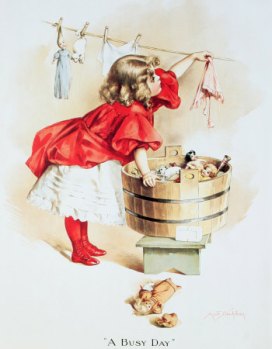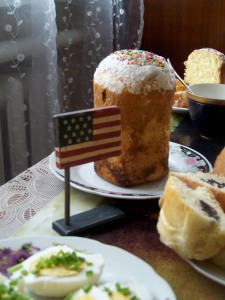 These nights warm quickly from the fevered breathing of neighborhood kids catching up to each other. Straight-backed Ukrainian diasporans sweep away winter from their patch of sidewalk in short, precise passes. Around them ride grandkids on scooters and bikes, their voices high and excited about this good stretch. I can hear some lonely kid’s cry from across the street. Two dogs greet each other loosey-goosey on the corner. The skyline glows a la lite-brite from my back porch. It’s midnight and I am waking up to this place. Slowly counting and arranging for the safe passage of my memories.
These nights warm quickly from the fevered breathing of neighborhood kids catching up to each other. Straight-backed Ukrainian diasporans sweep away winter from their patch of sidewalk in short, precise passes. Around them ride grandkids on scooters and bikes, their voices high and excited about this good stretch. I can hear some lonely kid’s cry from across the street. Two dogs greet each other loosey-goosey on the corner. The skyline glows a la lite-brite from my back porch. It’s midnight and I am waking up to this place. Slowly counting and arranging for the safe passage of my memories.
No.1
I’m at work. (That wayward home for all misconstructed fantasies and the moribund afternoon.) I am bent forward over a thick pile of single-page letters, folding in threes and then pushing them aside to be stamped. My chair is rolled away into the corner of my office. I am standing in the sun, which beats slow and warm on my forehead. An ache begins at the edge of my shoulders. I step my feet apart and recalibrate. I pull the next letter from the pile and exhale. I feel the ache again and suddenly I am doing laundry on a Saturday afternoon in my Ukrainian bathtub.
Strange the things that knock a memory into the room, I think.
The washing began with soaking, sometimes a stir with the bottom end of a shampoo bottle and always an undue amount of patience. How much time I spent just waiting for water to be warm enough, for the washing powder to first thoroughly cover and then rinse free from what seemed an endless pile of wet, sniffling cotton. And what a hapless task: trying to clean cotton by swooshing and wringing it in a tepid basin of quickly cooling water.
And I think – who am I to whine about paper cuts and a thumb sore from folding? How raw my hands would be after a morning of washing!
I loved the end best: hanging the wet, heavy articles onto a drying line in the backyard, avoiding the clumps of purple and overripe mulberries that had fallen from the tree above and scaring away the chickens. Yes, this final stage was an aria before intermission. What joy and relief to be reminded that I was still succeeding there, that I wouldn’t walk dirty to the market and I might sleep on clean sheets once more. A small and simple triumph.
In the midst of my memory, I imagine my tall closet full of laundry in need of cleaning and I feel a profound sense of relief. Relief that I am not going to have to wash until my hands are raw and pickled from discount detergent. This is a feeling I expected to experience so much more often than I do. How quickly gratitude slips between the cracks – losing its influence as quickly as gum’s taste goes.
As I fold – once, then twice – these letters to our guests – I find gratitude a difficult egg to swallow. Not everything is as easy as the washing machine.
And now a return to that relief – that great cup of gratitude I drank down during my first few weeks back home in America. I doused everything in thanks– the dishwasher, the bus, the hot shower and the ‘to go’ cups at Starbucks. I thanked the world for the existence of soy milk and quinoa, late night supermarkets and mangoes in January. And yet mixed in among all of that gratitude were bitter notes on how the American world consumes itself. A ring of arsenic around the rim of my cup. I balked at the complete misappropriation of resources, all the while on my knees in praise of EZPass and pizza delivery.
“I hate this!”
“Ugh, but it’s wonderful!”
These are the dueling cries in the jeremiad of my return.
Some weeks, they are quieter. Nothing more than a soft hum under my ear. Like a printer expressing paper without ink. I work behind my desk and walk from the subway – neither grateful nor indignant; the turnkey of returning having found its lock.
But even then, there is the shaking of the doorknob. The things that I haven’t let in, expectant. Anticipation hot on my tail. What else is waiting to come in?






